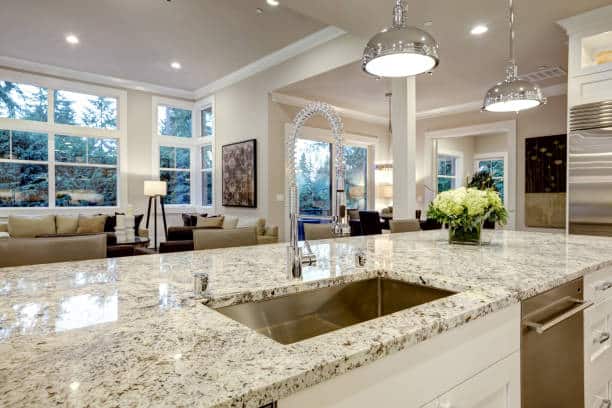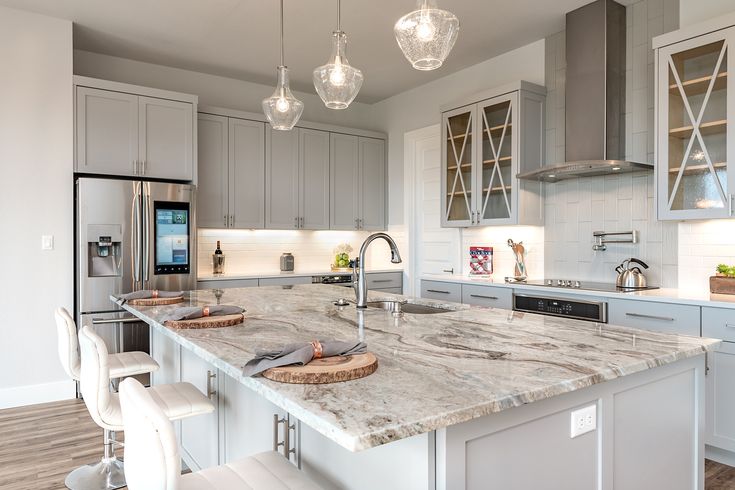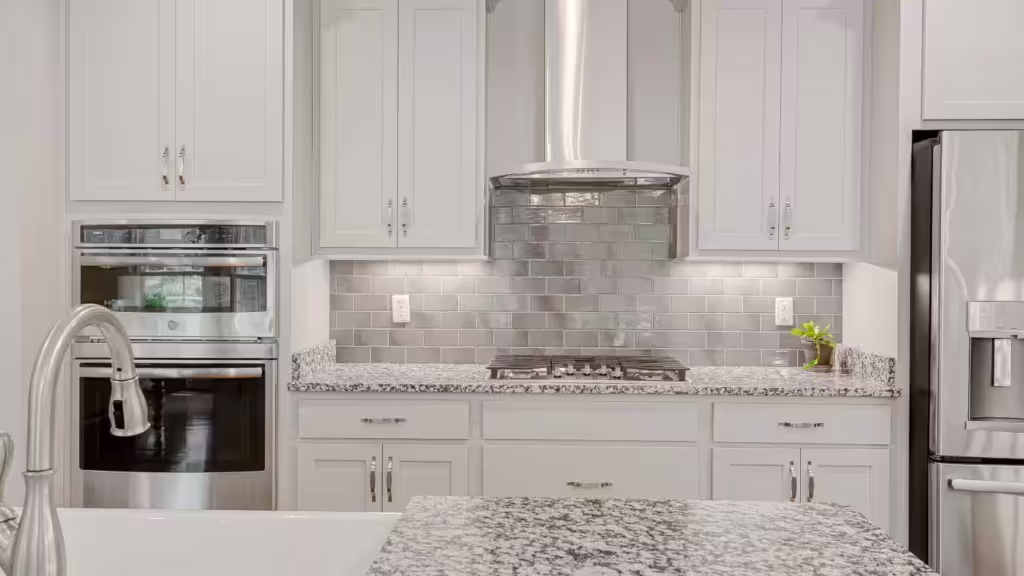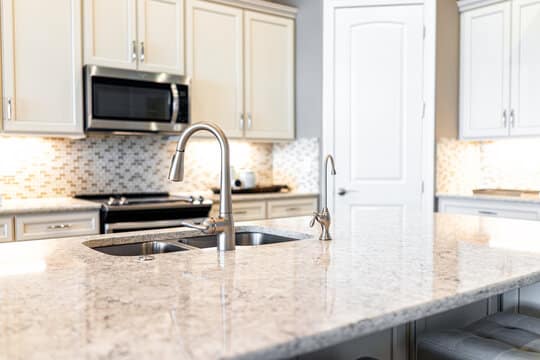Granite Countertops in Cincinnati, Ohio
THE BASICS OF GRANITE COUNTERTOPS
If you are considering changing out your kitchen or bathroom countertops, you might want to consider granite. Granite is quite literally cut directly from the ground, so it is easy to see why each piece varies in color, consistency, and texture. The majority of granite comes from Brazil, although there are some types of brown granite which originate in China, and other types of granite can come from places like Italy or India. When the granite is mined, the slabs are saw-cut, resin is applied to fill any pits, and the slab is cured in a huge oven. Following the curing process, granite slabs are polished and buffed to bring out their natural beauty.
There are countless shades of granite so you can find a color which complements the room, adding warmth and depth. Granite’s natural veining is a part of its beauty. Since granite can vary considerably, it is usually a good idea to personally choose your slab rather than looking at photographs. If you’ve decided on granite countertops, the Cincinnati Countertops and Cabinetry by Design team can assist you in choosing the perfect slab.


WHAT ARE THE ADVANTAGES OF GRANITE COUNTERTOPS?
Perhaps one of the biggest “pros” regarding granite countertops is that each and every granite slab is unique in some way, with its own colors, patterns, and individual lines. This means your granite countertop won’t look exactly like anyone else’s countertop. The uniqueness of each slab piece means there are so many shades and colors you can choose from, making it easy to find one which blends perfectly with your kitchen or bath décor. Granite countertops also can add considerable value to your home and are a big plus should you ever want to sell.
Granite is an extremely hard surface and is much less susceptible to scratches, meaning it can take your normal wear and tear of kitchen use better than most countertops, while also resisting heat fairly well. Granite is very resistant to stains when properly sealed, repelling liquids rather than absorbing them, as long as your granite is properly sealed.
WHAT ARE THE DISADVANTAGES OF GRANITE COUNTERTOPS?
Granite countertops are known for their beauty and durability, but they do have some drawbacks. If not properly sealed, the porous surface can absorb liquids like juice, wine, or oil, leaving permanent stains. Bacteria can also thrive in unsealed or poorly sealed granite. Some people find granite “cold” to the touch, as the stone pulls heat away from the skin.
Granite can also break during fabrication, though it’s rare. Unlike man-made countertops, granite may have seams, but an experienced professional will minimize them. Additionally, granite countertops can be more expensive, especially if the stone is rare or hard to quarry.


GRANITE VS. SOLID SURFACE OR QUARTZ COUNTERTOPS
Granite countertops are 100% natural, mined, cut, and polished, while quartz is 95% ground natural quartz and 5% polymer resins. Granite offers natural colors and patterns, while quartz can be customized. Both are similarly priced, with granite installations ranging from $2,000 to $4,000 and quartz from $1,500 to $5,000, depending on size and choice.
Quartz is considered more eco-friendly due to local manufacturing and shorter transportation distances, unlike granite, which is often imported. For maintenance, granite needs daily cleaning with soap and water, while quartz is more durable and less porous but can be damaged by heat.
Solid surface countertops, made from 33% polymers and 66% minerals, are less dense and typically cheaper than granite but aren’t as durable or luxurious. They offer a functional option for tighter budgets.
What Things Should I Consider Prior to Choosing My Granite Countertop?
Budget
It can be difficult to shave costs on slab granite countertops—granite is a premium product, but it can be less cost prohibitive than some expect. In fact, wholesale and discount granite countertops can be placed in a home with little investment in comparison to the value it could bring to your home. Another way to hold down the cost of granite countertops lies in minimizing edge treatments, since complex edge treatments increase the price of granite countertops.
